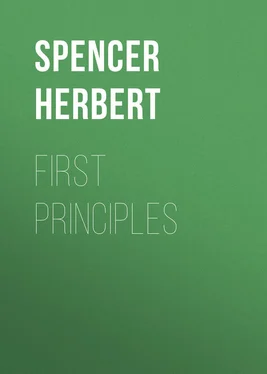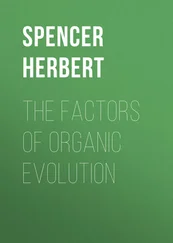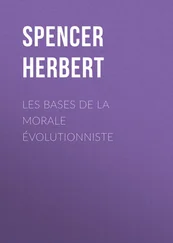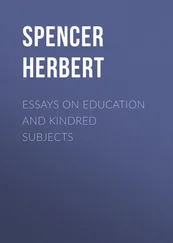Herbert Spencer - First Principles
Здесь есть возможность читать онлайн «Herbert Spencer - First Principles» — ознакомительный отрывок электронной книги совершенно бесплатно, а после прочтения отрывка купить полную версию. В некоторых случаях можно слушать аудио, скачать через торрент в формате fb2 и присутствует краткое содержание. Жанр: Философия, foreign_antique, foreign_prose, на английском языке. Описание произведения, (предисловие) а так же отзывы посетителей доступны на портале библиотеки ЛибКат.
- Название:First Principles
- Автор:
- Жанр:
- Год:неизвестен
- ISBN:нет данных
- Рейтинг книги:5 / 5. Голосов: 1
-
Избранное:Добавить в избранное
- Отзывы:
-
Ваша оценка:
- 100
- 1
- 2
- 3
- 4
- 5
First Principles: краткое содержание, описание и аннотация
Предлагаем к чтению аннотацию, описание, краткое содержание или предисловие (зависит от того, что написал сам автор книги «First Principles»). Если вы не нашли необходимую информацию о книге — напишите в комментариях, мы постараемся отыскать её.
First Principles — читать онлайн ознакомительный отрывок
Ниже представлен текст книги, разбитый по страницам. Система сохранения места последней прочитанной страницы, позволяет с удобством читать онлайн бесплатно книгу «First Principles», без необходимости каждый раз заново искать на чём Вы остановились. Поставьте закладку, и сможете в любой момент перейти на страницу, на которой закончили чтение.
Интервал:
Закладка:
Thus, however untenable may be any or all the existing religious creeds, however gross the absurdities associated with them, however irrational the arguments set forth in their defence, we must not ignore the verity which in all likelihood lies hidden within them. The general probability that widely-spread beliefs are not absolutely baseless, is in this case enforced by a further probability due to the omnipresence of the beliefs. In the existence of a religious sentiment, whatever be its origin, we have a second evidence of great significance. And as in that nescience which must ever remain the antithesis to science, there is a sphere for the exercise of this sentiment, we find a third general fact of like implication. We may be sure therefore that religions, though even none of them be actually true, are yet all adumbrations of a truth.
§ 5. As, to the religious, it will seem absurd to set forth any justification for Religion; so, to the scientific, will it seem absurd to defend Science. Yet to do the last is certainly as needful as to do the first. If there exists a class who, in contempt of its follies and disgust at its corruptions, have contracted towards Religion a repugnance which makes them overlook the fundamental verity contained in it; so, too, is there a class offended to such a degree by the destructive criticisms men of science make on the religious tenets they regard as essential, that they have acquired a strong prejudice against Science in general. They are not prepared with any avowed reasons for their dislike. They have simply a remembrance of the rude shakes which Science has given to many of their cherished convictions, and a suspicion that it may perhaps eventually uproot all they regard as sacred; and hence it produces in them a certain inarticulate dread.
What is Science? To see the absurdity of the prejudice against it, we need only remark that Science is simply a higher development of common knowledge; and that if Science is repudiated, all knowledge must be repudiated along with it. The extremest bigot will not suspect any harm in the observation that the sun rises earlier and sets later in the summer than in the winter; but will rather consider such an observation as a useful aid in fulfilling the duties of life. Well, Astronomy is an organized body of similar observations, made with greater nicety, extended to a larger number of objects, and so analyzed as to disclose the real arrangements of the heavens, and to dispel our false conceptions of them. That iron will rust in water, that wood will burn, that long kept viands become putrid, the most timid sectarian will teach without alarm, as things useful to be known. But these are chemical truths: Chemistry is a systematized collection of such facts, ascertained with precision, and so classified and generalized as to enable us to say with certainty, concerning each simple or compound substance, what change will occur in it under given conditions. And thus is it with all the sciences. They severally germinate out of the experiences of daily life; insensibly as they grow they draw in remoter, more numerous, and more complex experiences; and among these, they ascertain laws of dependence like those which make up our knowledge of the most familiar objects. Nowhere is it possible to draw a line and say – here Science begins. And as it is the function of common observation to serve for the guidance of conduct; so, too, is the guidance of conduct the office of the most recondite and abstract inquiries of Science. Through the countless industrial processes and the various modes of locomotion which it has given to us, Physics regulates more completely our social life than does his acquaintance with the properties of surrounding bodies regulate the life of the savage. Anatomy and Physiology, through their effects on the practice of medicine and hygiene, modify our actions almost as much as does our acquaintance with the evils and benefits which common environing agencies may produce on our bodies. All Science is prevision; and all prevision ultimately aids us in greater or less degree to achieve the good and avoid the bad. As certainly as the perception of an object lying in our path warns us against stumbling over it; so certainly do those more complicated and subtle perceptions which constitute Science, warn us against stumbling over intervening obstacles in the pursuit of our distant ends. Thus being one in origin and function, the simplest forms of cognition and the most complex must be dealt with alike. We are bound in consistency to receive the widest knowledge which our faculties can reach, or to reject along with it that narrow knowledge possessed by all. There is no logical alternative between accepting our intelligence in its entirety, or repudiating even that lowest intelligence which we possess in common with brutes.
To ask the question which more immediately concerns our argument – whether Science is substantially true? – is much like asking whether the sun gives light. And it is because they are conscious how undeniably valid are most of its propositions, that the theological party regard Science with so much secret alarm. They know that during the two thousand years of its growth, some of its larger divisions – mathematics, physics, astronomy – have been subject to the rigorous criticism of successive generations; and have notwithstanding become ever more firmly established. They know that, unlike many of their own doctrines, which were once universally received but have age by age been more frequently called in question, the doctrines of Science, at first confined to a few scattered inquirers, have been slowly growing into general acceptance, and are now in great part admitted as beyond dispute. They know that men of science throughout the world subject each other’s results to the most searching examination; and that error is mercilessly exposed and rejected as soon as discovered. And, finally, they know that still more conclusive testimony is to be found in the daily verification of scientific predictions, and in the never-ceasing triumphs of those arts which Science guides.
To regard with alienation that which has such high credentials is a folly. Though in the tone which many of the scientific adopt towards them, the defenders of Religion may find some excuse for this alienation; yet the excuse is a very insufficient one. On the side of Science, as on their own side, they must admit that short-comings in the advocates do not tell essentially against that which is advocated. Science must be judged by itself: and so judged, only the most perverted intellect can fail to see that it is worthy of all reverence. Be there or be there not any other revelation, we have a veritable revelation in Science – a continuous disclosure, through the intelligence with which we are endowed, of the established order of the Universe. This disclosure it is the duty of every one to verify as far as in him lies; and having verified, to receive with all humility.
§ 6. On both sides of this great controversy, then, truth must exist. An unbiassed consideration of its general aspects forces us to conclude that Religion, everywhere present as a weft running through the warp of human history, expresses some eternal fact; while it is almost a truism to say of Science that it is an organised mass of facts, ever growing, and ever being more completely purified from errors. And if both have bases in the reality of things, then between them there must be a fundamental harmony. It is an incredible hypothesis that there are two orders of truth, in absolute and everlasting opposition. Only on some Manichean theory, which among ourselves no one dares openly avow however much his beliefs may be tainted by it, is such a supposition even conceivable. That Religion is divine and Science diabolical, is a proposition which, though implied in many a clerical declamation, not the most vehement fanatic can bring himself distinctly to assert. And whoever does not assert this, must admit that under their seeming antagonism lies hidden an entire agreement.
Читать дальшеИнтервал:
Закладка:
Похожие книги на «First Principles»
Представляем Вашему вниманию похожие книги на «First Principles» списком для выбора. Мы отобрали схожую по названию и смыслу литературу в надежде предоставить читателям больше вариантов отыскать новые, интересные, ещё непрочитанные произведения.
Обсуждение, отзывы о книге «First Principles» и просто собственные мнения читателей. Оставьте ваши комментарии, напишите, что Вы думаете о произведении, его смысле или главных героях. Укажите что конкретно понравилось, а что нет, и почему Вы так считаете.












